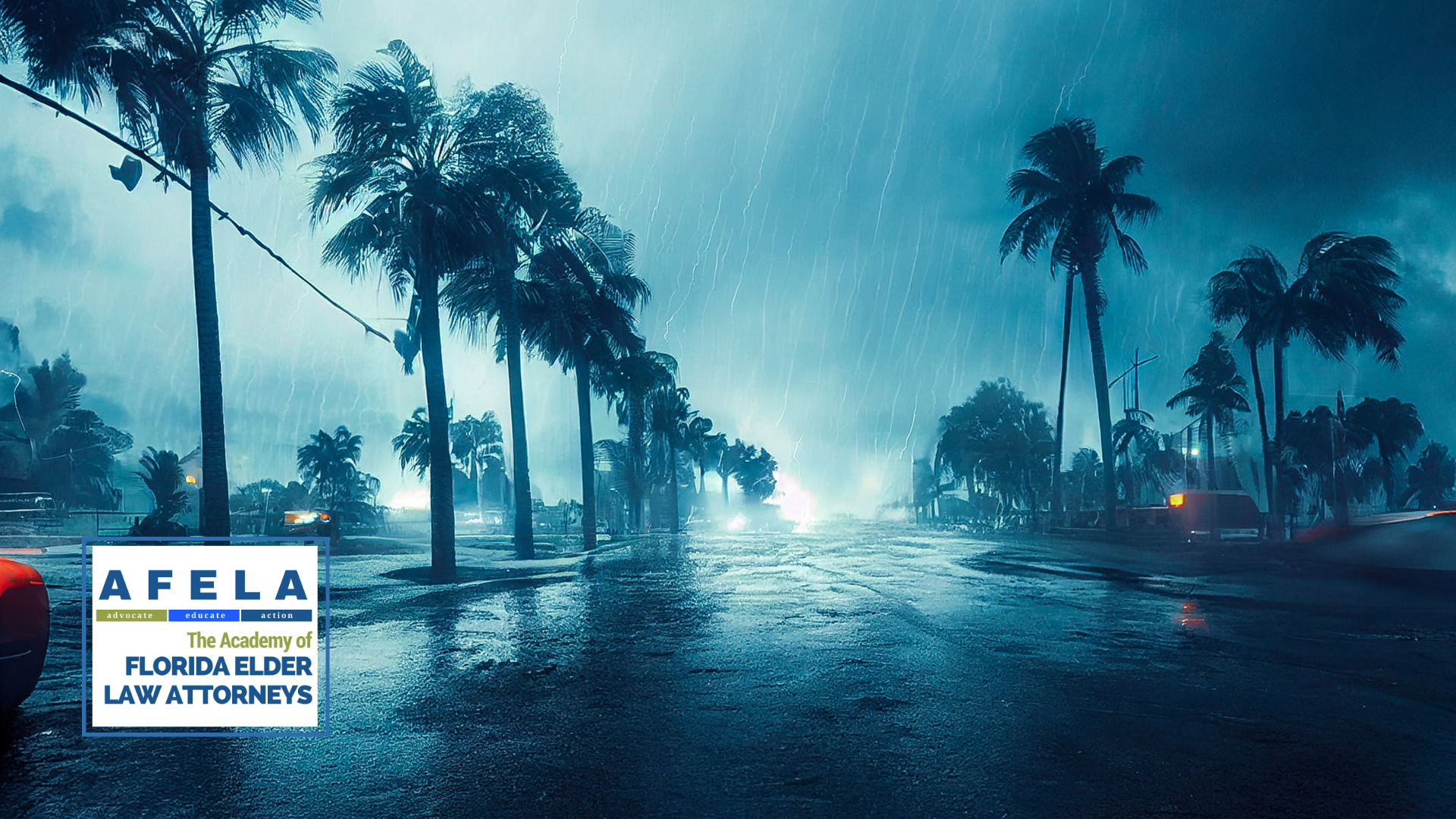
Hurricane season in Florida is an annual reality that demands careful planning and preparation, especially for seniors and their families. With the potential for severe weather and its subsequent challenges, it is crucial for older adults and their loved ones to take proactive measures to ensure safety, comfort, and peace of mind.
Let us share 14 essential hurricane preparedness tips tailored specifically for Florida elders and their families right here on our blog.
- Stay Informed. Keep track of weather forecasts and emergency alerts via radio, TV, or weather apps. Stay informed about storm developments to make timely decisions.
- Create a Communication Plan. Establish a communication plan with family members, neighbors, and caregivers. Ensure everyone knows how to contact each other before, during, and after the storm.
- Build a Hurricane Kit. Assemble a well-stocked emergency kit with essential supplies like non-perishable food, water, medications, first aid items, flashlights, batteries, and personal hygiene products.
- Medication Readiness. Ensure an adequate supply of prescription medications. Consider discussing an emergency prescription refill plan with healthcare providers.
- Mobility Assistance. For seniors with mobility challenges, plan for accessible evacuation routes and have necessary mobility aids readily available.
- Register for Special Needs Sheltering. If required, register for special needs sheltering in advance. These shelters provide necessary accommodations for individuals with medical needs.
- Document Important Information. Prepare a document containing important information such as medical records, insurance policies, identification, and contact details for healthcare providers.
- Safeguard Documents. Store important documents, like your original estate planning documents, in a waterproof container or digitally upload them to secure online storage platforms.
- Secure Your Home. Fortify your home by installing hurricane shutters, reinforcing doors and windows, and trimming trees to prevent potential hazards.
- Backup Power. Consider having a backup power source, such as a generator or battery-operated devices, to ensure continuity of medical equipment and communication.
- Plan for Pets. If you have pets, include them in your hurricane plan. Stock up on pet supplies and make arrangements for their safety and care.
- Evacuation Plan. Plan your evacuation route and destination. Identify nearby shelters, hotels, or the homes of family and friends where you can seek refuge.
- Financial Preparedness. Have cash on hand, as ATMs and credit card systems may be unavailable during and after the storm. Also, ensure access to important financial documents.
- Post-Storm Check-In. After the storm passes, check in with family members and neighbors to ensure everyone is safe. Continue to monitor official communications for updates and instructions.
In addition to these tips, Florida Medicaid planning can be a valuable strategy for seniors and their families to ensure adequate access to necessary care during and after a hurricane. Florida Medicaid planning involves considering the financial aspects of healthcare, especially for long-term care needs that may arise due to storm-related health issues.
By incorporating these 14 hurricane preparedness tips and considering Florida Medicaid planning, seniors and their families can face hurricane season with greater confidence and readiness. Remember that preparation is the key to safety, and taking proactive steps now can significantly mitigate potential risks and challenges in the future.
We know this article may raise more questions than it answers. The Academy of Florida Elder Law Attorneys (AFELA) is the pre-eminent organization of Florida elder law attorneys providing advocacy, education and action on behalf of seniors and people with disabilities. We encourage you to contact one of our attorneys in your area using our Find a Lawyer website for assistance.








